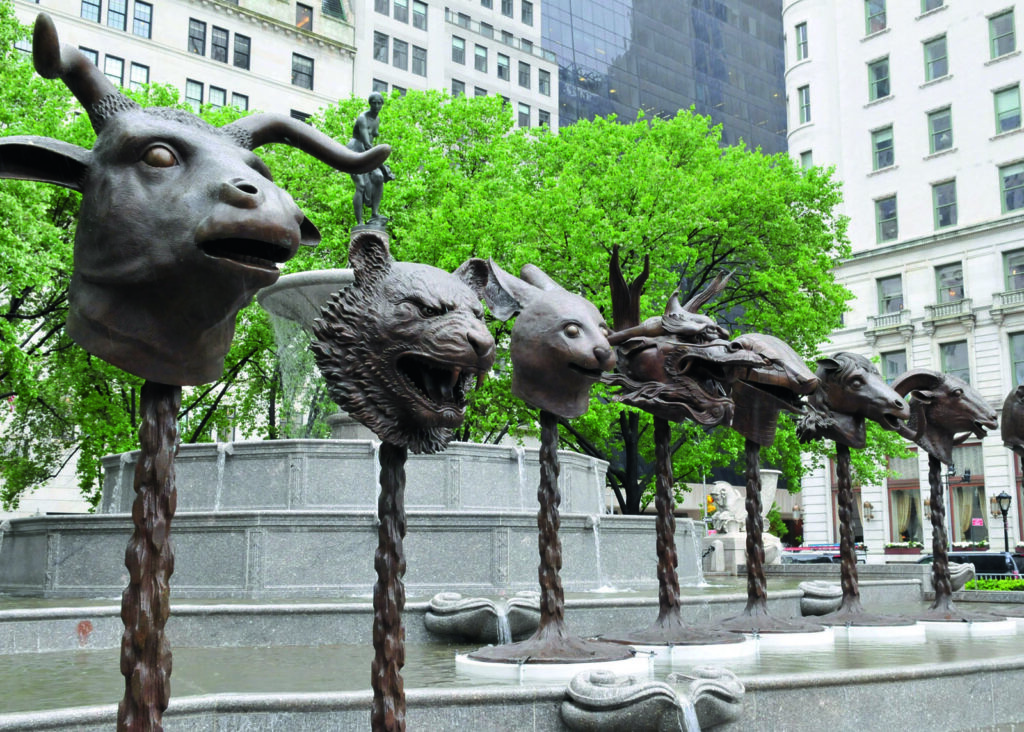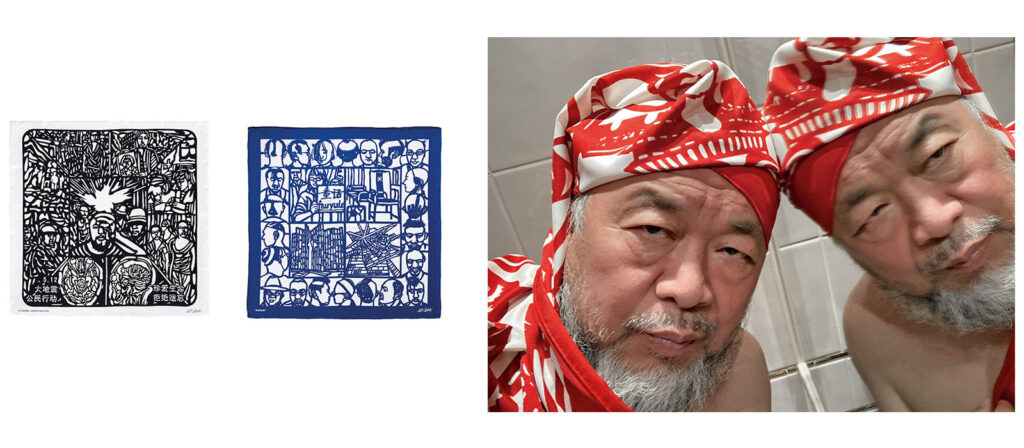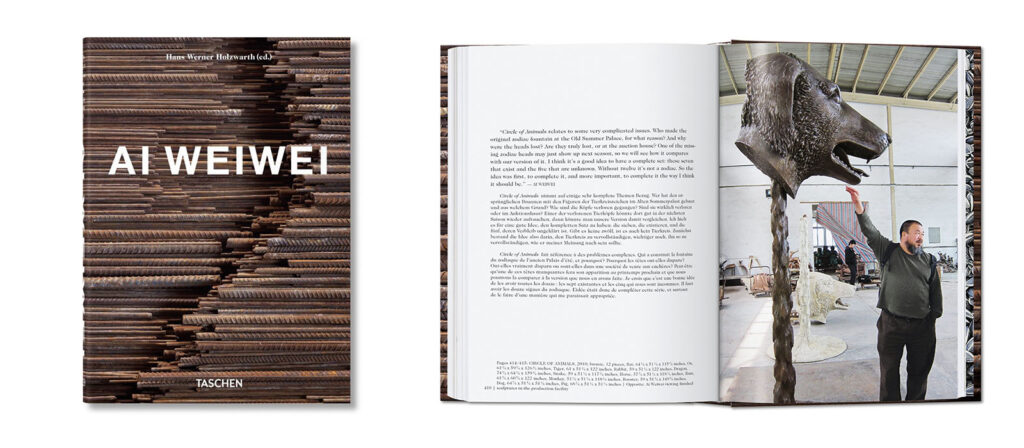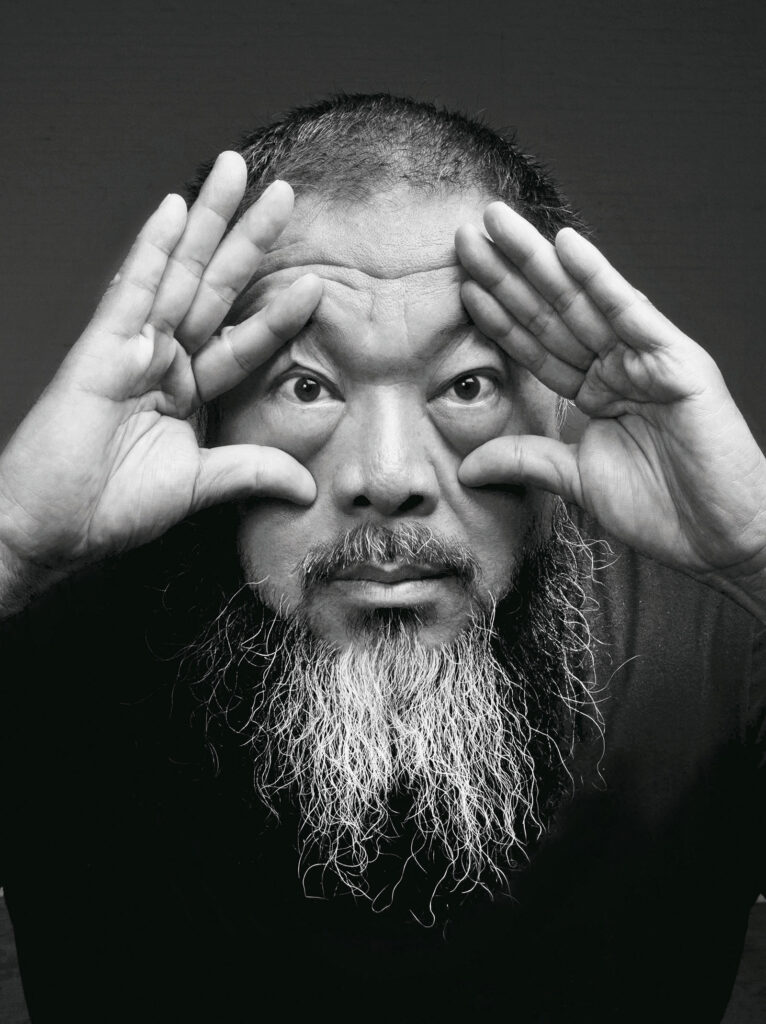Ai Weiwei, who has endured the harshness of Chinese censorship since his childhood, now finds himself in the absurd predicament of being censored in Europe, in London no less. In response, he raises his voice to caution us against the growing lack of freedom of speech and to chastise those “artists” who pursue their craft with the aim of garnering fame and profit, ultimately becoming nothing more than extravagant decorators and betraying the ideal of the true artist, which is to express human emotions and, ultimately, to defend humanity.
Ai Weiwei, known for his activism and provocative art, has recently found himself at the center of a controversy that has brought the issue of censorship in art into the spotlight. The abrupt cancellation of his exhibition in London, following a tweet he posted about the Israeli-Palestinian conflict, has raised questions about the state of freedom of expression in the art world. This incident is emblematic of a challenging time for contemporary art, where censorship and the pursuit of profit seem to outweigh freedom of expression and message.
Ai Weiwei is an artist who has never been afraid to confront authorities and use his art as a form of protest. Born in Beijing in 1957, the son of the poet Ai Qing, he has lived a life marked by constant political and social engagement. His definitive monograph, published by Taschen in 2014 and updated over the years, traces his artistic and personal journey, from his early years of training to his activism for human rights, from his art that challenges power to the numerous times he has been arrested and detained.

Ai Weiwei’s career is dotted with works that openly question and criticize government policies, censorship, and the limitation of individual freedoms. Among his most famous works, “Sunflower Seeds” (2010), an installation at the Tate Modern in London made up of millions of porcelain sunflower seeds, represents a reflection on mass production in China and the condition of the individual in contemporary society. This is just one example of Ai Weiwei’s ability to combine aesthetics and political commitment, making his art a powerful tool for social criticism.
However, the episode of the cancellation of his show in London highlights a broader problem plaguing the art world: the growing censorship and the fear of expressing positions that diverge from mainstream thought. This phenomenon is not limited to China or authoritarian regimes but is also manifesting in Europe, where freedom of expression should be guaranteed. The case of Ai Weiwei shows how artists who seek to address controversial or politically sensitive themes can be subject to pressures and censorship, even in democratic contexts.
At the same time, there is a growing success of artists who, rather than conveying profound or critical messages, seem to prioritize the pursuit of fame and profit. This trend risks emptying art of its transformative potential and reducing it to mere entertainment or, worse, a marketing tool.
The Ai Weiwei incident in London raises urgent questions about the state of artistic freedom and the importance of art as a form of resistance and social critique. At a time when censorship and commercialization seem to be gaining ground, it is essential to support artists who, like Ai Weiwei, use their voice to challenge power and inspire change
Art must remain a space of freedom, where diversity of thought and criticism can flourish without fear.
———————–

Meeting of Two Free Minds: The Enduring Collaboration Between TASCHEN and Ai Weiwei
The collaboration between Taschen and Ai Weiwei, represents a remarkable confluence of artistic freedom and audacity. From their first groundbreaking project, a limited edition monograph of Ai Weiwei’s work, this partnership has continually pushed the boundaries.
This pioneering edition was a piece of history in itself, presented with a specially designed marble book stand weighing over 100 Kg and wrapped in a Habotai silk scarf, which reproduced a detail of Ai Weiwei’s work “Straight”, this edition set a new standard for what an artist’s monograph could be. It was an artwork, embodying the spirit of Ai Weiwei’s commitment to memory, material, and message.
Over the years, TASCHEN and Ai Weiwei have continued their fruitful collaboration, producing limited edition prints, scarves, and refined papercut works. Each project has been a testament to their shared values of innovation, quality, and a deep respect for artistic expression. Through these collaborations, TASCHEN has not only helped to bring Ai Weiwei’s challenging and thought-provoking works to a broader audience but has also celebrated the artist’s unyielding commitment to freedom of expression.
The partnership between TASCHEN and Ai Weiwei is a celebration of the freedom of art. It shows how creativity can flourish and transcend limits when supported by a commitment to artistic integrity and the courage to speak truth to power.
Hans Werner Holzwarth: ai weiwei. 40th edition
The definitive monograph on Ai Weiwei
Drawn from TASCHEN’s limited Collector’s Edition, this monograph explores each of Ai’s career phases up until his release from Chinese custody. It features extensive visual material to trace Ai’s development from his early New York days right through to his recent practice. – Hardcover, 15.6 x 21.7 cm, 1.23 kg, 512 pages – € 25


